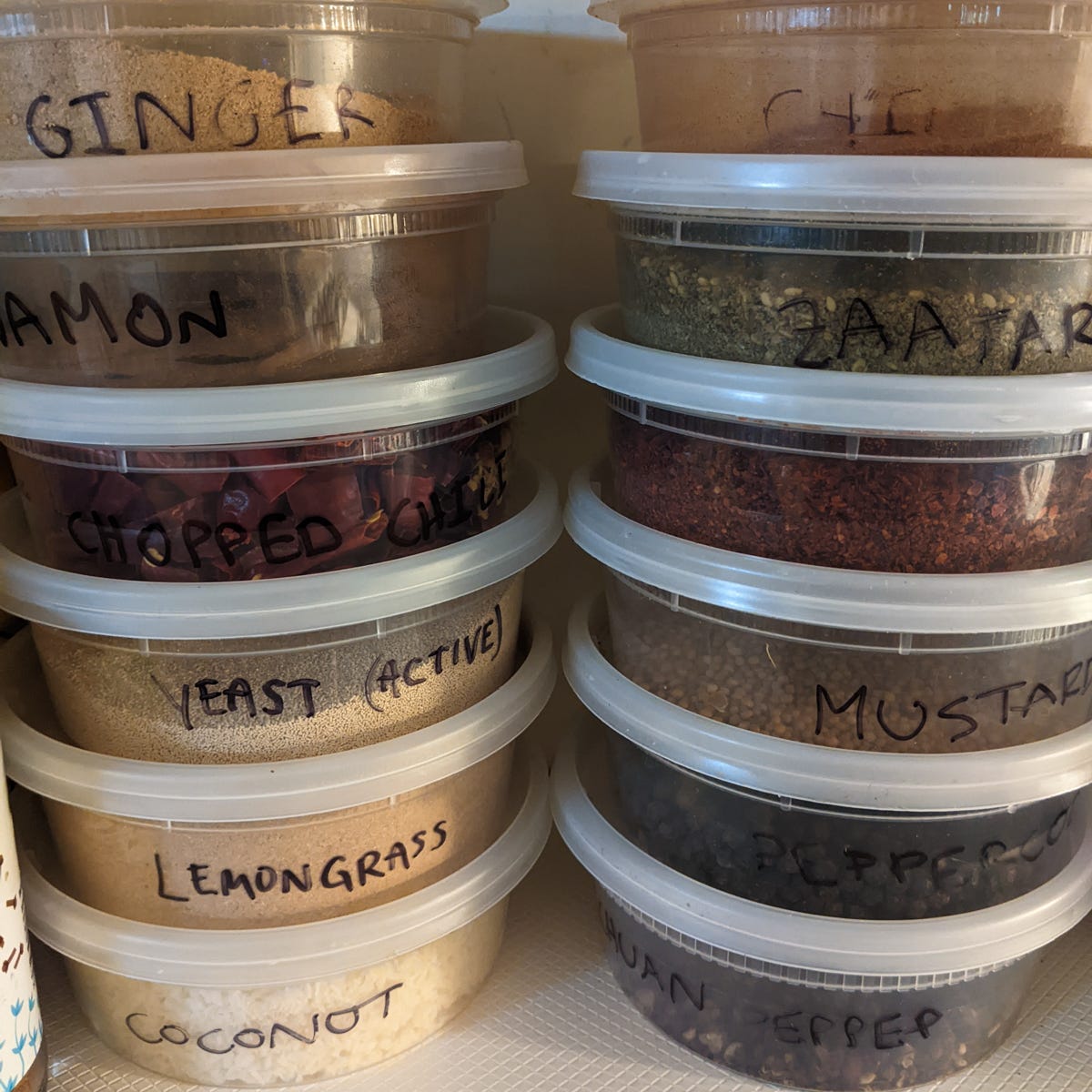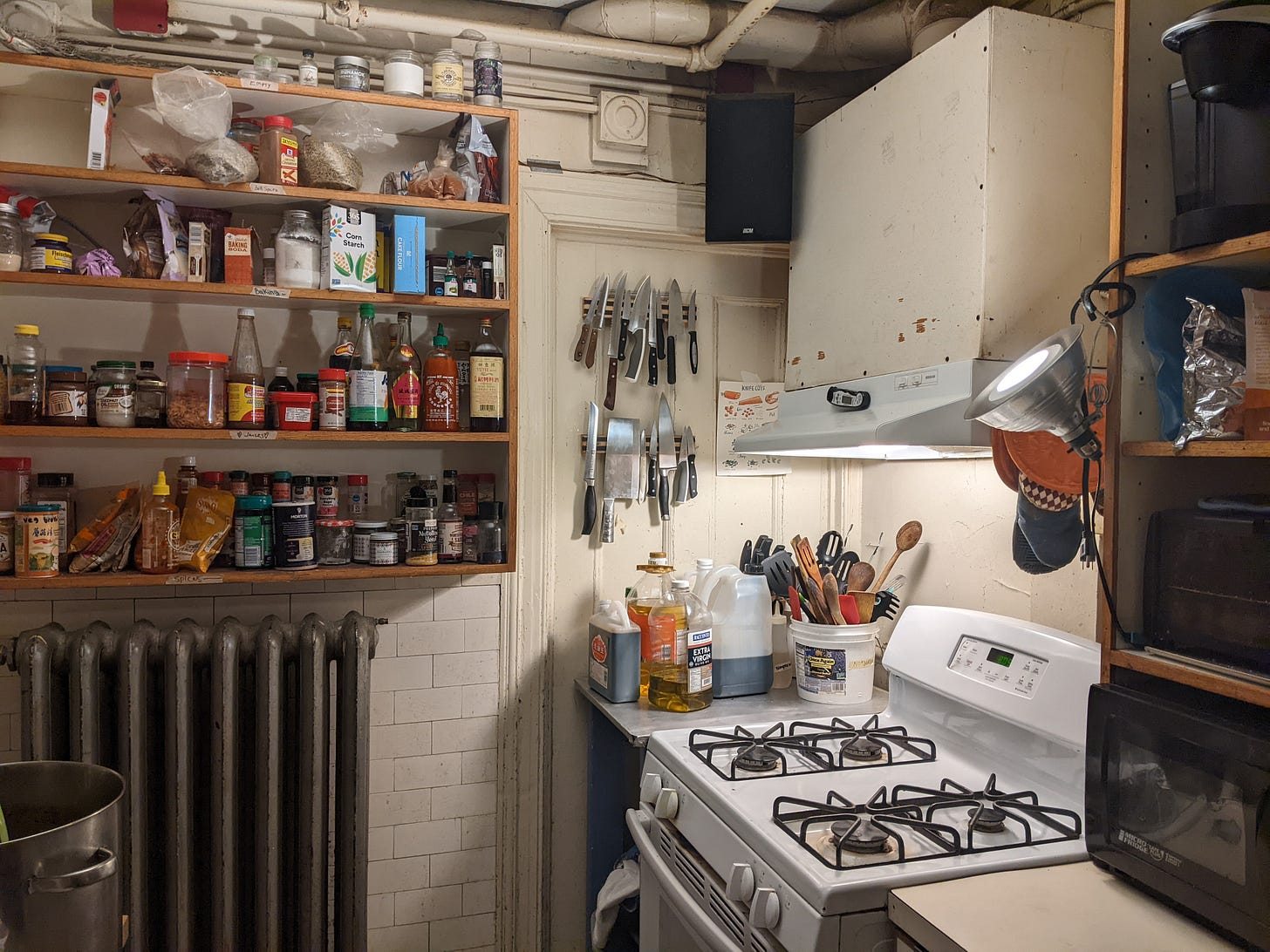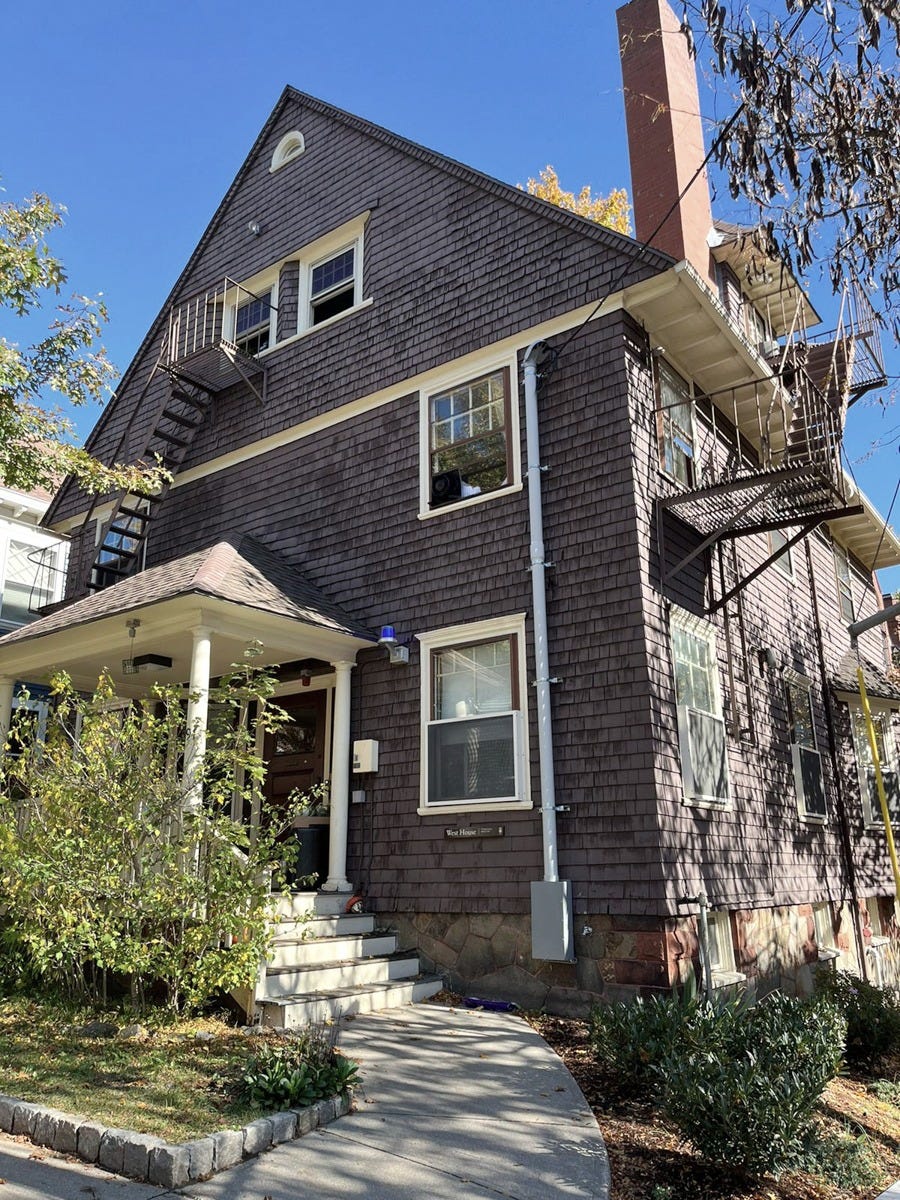Nourishment (Guest post by Anyssa Ball)
Where I found the sacred during my life at Brown
Intro from Courtney
My daughter Anyssa has always been an old soul. When I thought of people I wanted to write guest posts for this Sacred to Somebody series, she was high on my list. Apart from when she was a young child (birth to age five) Anyssa was never really part of a traditional faith community. But she found something sacred in her time at Brown University when she was part of West House.
If you don’t already know Anyssa, I’m delighted to introduce you to her through this piece of writing!
Nourishment
Where I found the sacred during my life at Brown.
“Eventually, we decided that sacredness is an act, not a thing.”
- Vanessa Zoltan, Praying with Jane Eyre
I spent most of the first two years of college eating alone.
My perception of other freshmen was that they found friend groups early and would meet up at dining halls every meal, but it took me a while to find my footing in the new social environment. While I’d plan individual meals with individual friends, I spent most of my lunches and dinners reading or listening to podcasts while absentmindedly shoveling the dining hall’s mediocre vegetarian offerings into my mouth.
After being sent home by the pandemic partway through my freshman year, I returned in the fall semester to social distancing rules and terrible bagged meals alone in my dorm.
This was all quite the change from my relationship with food up until college. My parents cooked dinner nearly every night, exposing us to lots of different flavors. As a kid I enjoyed baking, then started cooking my own lunches in high school. In the summers I grew vegetables, learning that tomatoes could taste good, actually.
I loved dinner parties, usually casual affairs where the cooking responsibility was shared among a few close family friends. I annoyed my younger sister by wanting to sit at the table with the grown-ups and talk long after the meal was finished. In middle school, we hosted monthly potlucks with whoever wanted to drop in, resulting in some very motley but fun meals. In high school, one of our family friends bought a food-around-the-world calendar, triggering a tradition of making food from a different country for a shared meal each month. We ignored the “cook what you know” rule of hosting and used it as a chance to explore new recipes.
In my third year of college, I lived in West House.
Living in West House brought out my food-as-love-language side again. Kind of difficult to label, we were officially an “environmental program house,” but I prefer to use words like “housing co-op” or “living and eating community.” Sometimes I’ll even throw in words like “intentional” or “non-hierarchical,” when I’m describing our community.
The basics are this—fourteen in-house members and a handful of out-of-house members took turns cleaning, cooking, and cleaning again so that we could collectively feed ourselves six nights a week. We pooled our money and time to buy local and bulk foods (still less than a university meal plan), facilitate weekly house meetings, manage recruitment and the application process, and make our house a home. Each week, we signed up for one to two cooking or cleaning slots, fitting it into our chaotic college student schedules. Pairs of cooks would work together to improvise a full meal out of whatever we had in our fridge and pantry, navigating a variety of dietary restrictions, and almost had it ready by 6:30 sharp.
Coming from the isolation of the pandemic…
…it was quite a change to be spending so much time around people, but it was also so, so necessary. I think that college, or at least the culture at Brown, can bring out individualism if you aren’t careful. West was a counter to that norm, a comfortable little bubble where the chaos of twenty or so college students fell into a peaceful hum. Sunday night meetings filled the house to bursting; we would check in with each other, plan parties and other social events, gossip about North House (our younger sibling environmental program house a block away), sign up for jobs, propose house purchases, and hash out any issues (usually people leaving their dishes in the kitchen without washing them). We had our own silly jargon and traditions. There was always someone in the kitchen or living room, ready to abandon their studying for a late night conversation.
College was the first time I really struggled with school. All the structure of high school I had unknowingly relied on dropped out from me and made it hard for me to get through all of the readings and write all the papers. Cooking or cleaning for West was the opposite of writing a paper—I knew the steps, had trust in my hands to get them done, and was generally satisfied with the end result. I could ignore all the background anxiety for a few hours and work in service to others (and my own stomach).
West House was not self-defined as a spiritual community.
I think if we had promoted ourselves that way, it would have turned people off from us, including me. The diversity that made West work probably couldn’t have happened if we went all in on a spirituality focus. At the same time, we certainly had shared values, the result of which was a cobbled together ethic of support and nourishment. We knew that the labor we poured into the house would come back to us.
Within the context of sacredness as an action, faith is defined as trust that engaging with a practice will be generative. On the surface level, I had trust in my house members that they would provide dinner for me each night, that the people shopping would buy enough for me to cook with, that my fellow cook would collaborate with me, and that I would eventually come to an end result that tastes good.
On a deeper level, I had faith that cooking and cleaning for the house would bring me closer to my community. That figuring out how to live in community was not just important for my own development, but that it will also help to shift the norms of our society into something more supportive. I have faith that even though it's temporary, the joy is meaningful. At the very least, it’s made me a better cook!
.







Lovely!
Thanks for letting us get to know you a little and know that you are growing in faith in yourself and others.